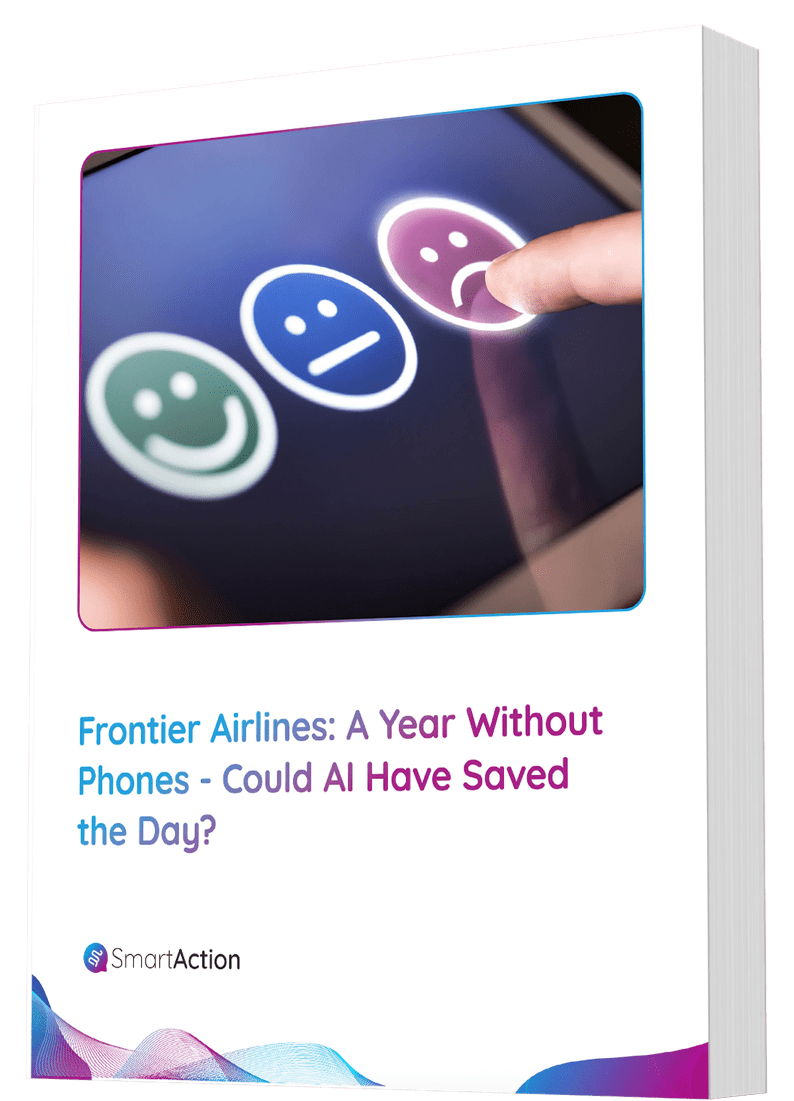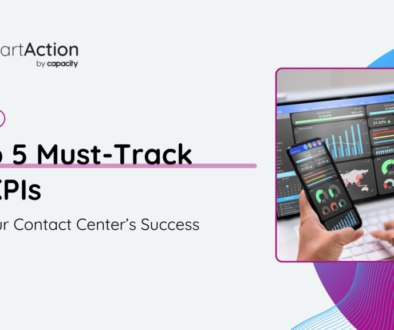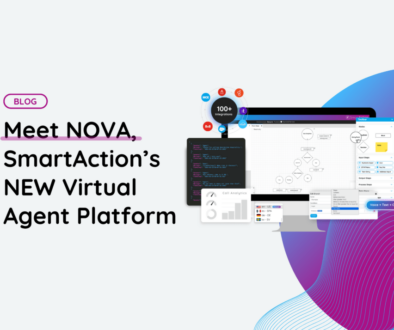How an Intelligent Front Door Helps with AI Implementation
This blog was adapted from our November 2017 webinar, Designing a Self-Service Strategy With Your Customers & Agents in Mind, where we identified the Intelligent Front Door as a great way to practically introduce AI to your call center automation strategy.
“The process of determining what to automate can be a journey because there are so many places to start. I am going to show and discuss a small roadmap example that’s universal to any type of business. A few real-world examples of where to start with AI are an intelligent front door, authentication, and payments and collections. These are typical opportunities for AI-powered customer service in your call center. You can start with any of those solutions, and they can all blend together.
An intelligent front door is what you would think of as a replacement for traditional IVR automation. An intelligent front door allows you to have the ease of conversational communication with your customers as a first touch, which is really important for easing into AI-powered customer service and helping the customer feel comfortable with it. In addition, it really helps your business because there’s an opportunity for your agents to know the intent of the caller right up front, allow for proper routing, and eliminate frustration. When customers call in and their option isn’t one of the menu items, it is really frustrating. Having that intelligent conversation at the beginning and simply asking, “How can I help you?” is a much more effortless experience for the customer. You capture the intent right up front to put the customer at ease and make them feel comfortable on the phone. We have a couple of examples of how this is being used today.
Example Uses of Intelligent Front Door
One of the examples is this traditional customer inbound call in which we ask, “How can I help you?”, capture intent, and route appropriately. To go a step further, we learned that gathering this information up front using IVR automation also helps you gather data, which allows you to identify potential automation opportunities down the road. For example, if we’re hearing the same thing over and over from callers, it might be a repetitive process to think about automating in order to meet that demand.
Another example, which is less traditional but I think also very applicable for a front door, is for internal business processes. If you are a company that has franchise locations, or is a very large international corporation, there’s an opportunity to think about how a front door could help you streamline operations. Whether it be employees calling into HR trying to get information on benefits, or a franchise location calling into corporate about a recall of some sort, you can institute an AI-powered front door to handle the intent capture portion of the call.
The next roadmap item is account authentication, which is almost a partner of a front door. In this case, you are taking that customer self-service a step further and diving deeper into the caller’s needs. This is particularly helpful for businesses that are membership-based, where callers already have a relationship with you and, theoretically, you ‘know’ them.
All in all, starting small and building big is an effective approach to introducing self-service AI. All you need is a roadmap of where you want your business to go and how this aligns with your strategic plan.”
Read more about Easing Into the AI Revolution here.






